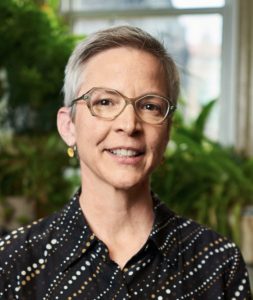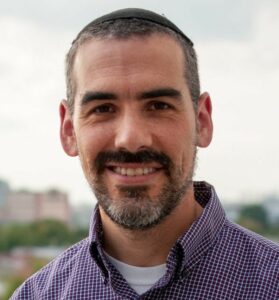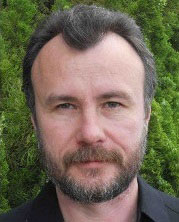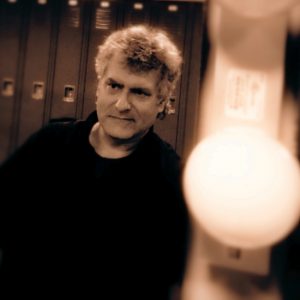“The Latest Novelties: New Goods and New Ideas in 19th-Century America”
Monday, April 15, 2024
11:20 a.m. – 12:20 p.m.
Rutgers–Camden, Campus Center, Multi-Purpose Room
Abstract:
While we are perpetually distracted by the latest things, from Instagram-generated fashion fads to the endlessly new products to be discovered on Temu, Americans weren’t always this way. At one time, we owned fewer possessions and held onto them for lifetimes, passing down pieces of furniture from one generation to the next, repairing household tools so they could be used again, and literally refashioning old clothes to conform to changing bodies and styles. So what changed? Why did Americans begin embracing new commodities during the long 19th century, buying things that were sometimes wholly unfamiliar and often unnecessary? This lecture will focus on the intersection of novelty and consumer culture from the late 18th through the 19th century, taking a closer look at people’s attitudes towards new products and new ideas. Novelty in this context can help us better understand important aspects of American life and culture, including the rapid expansion of capitalism, the growing tensions between urban and rural life, and people’s relative embrace or fear of innovation and change. Novelty can also help us better understand how we arrived at the ever-changing disposable culture we live in today
About Dr. Woloson:
 Wendy A. Woloson joined the faculty of Rutgers-Camden in 2013, where she is now Professor of History. Her areas of interest are the histories of consumer culture, capitalism, underground economies, and visual and material culture. Her most recent book Crap: A History of Cheap Stuff in America (2021) has been translated into Korean and Chinese, and was a finalist for the National Book Critic’s Circle award in Criticism. Her current project focuses on the history of novelty and consumer goods.
Wendy A. Woloson joined the faculty of Rutgers-Camden in 2013, where she is now Professor of History. Her areas of interest are the histories of consumer culture, capitalism, underground economies, and visual and material culture. Her most recent book Crap: A History of Cheap Stuff in America (2021) has been translated into Korean and Chinese, and was a finalist for the National Book Critic’s Circle award in Criticism. Her current project focuses on the history of novelty and consumer goods.
“Raising Body Positive Girls.”
Date: Tuesday, September 29, 2020
Time: 12:30 p.m.
Location: Online (Zoom)
Abstract:
What is body image and why should we care about “raising body positive girls”?
The vast majority of tween and teen girls express dissatisfaction about their bodies and their appearances in general. This dissatisfaction is not a discrete or superficial worry. It’s a set of concerns that affect all facets of girls’ lives including their physical and mental health, sense of self, interpersonal relationships, and future aspirations.
In this presentation, I will review some of the latest research featured in my book, The Body Image Book for Girls: Love Yourself and Grow Up Fearless, and discuss my experience of writing for health promotion. The research reveals triggers of body dissatisfaction (e.g., social media) and identifies practices that contribute to body-positive girls. I’ll also talk about the challenges of writing a book for teenagers. If you have a body and have ever wanted to feel better about it, or know, have known, or will know a teenaged girl, or have read or want to write a book for young people, this presentation is relevant to you.
About Dr. Markey:
Dr. Charlotte Markey is a world-leading expert in body image research, having studied all things body image, eating behavior and weight management for her entire adult life (almost 25 years!). She is passionate about understanding what makes us feel good about our bodies, and helping people to develop a healthy body image. Charlotte loves to share her body image wisdom with others, and is an experienced book author, blogger and professor at Rutgers University–Camden. She currently lives in Pennsylvania with her daughter Grace, son Charlie, husband Dan, and their dog Lexi. For fun, she likes to run, swim, travel and read, but usually spends her free time driving her kids to see their friends and nagging them to clean their rooms.
To learn more about Charlotte Markey, you can visit her websites www.CharlotteMarkey.com or www.BodyImageBookforGirls.com, or connect with her on Facebook (Dr. Charlotte Markey), Twitter (@char_markey), Instagram (char_markey), or YouTube (Body Positivity).
“Bacterial sphingolipids: A new chapter in the mystery of the Sphinx”
Dr. Eric Klein, Professor of Biology
2023 Faculty Research Fellow
Thursday, May 4, 2023
12:45-1:45 p.m.
Rutgers–Camden, Campus Center, Multi-Purpose Room
Abstract:
Cells are surrounded by membranes that provide protection from the outside world. These membranes are largely composed of molecules called lipids and the particular molecular structures of these lipids give membranes their physiological properties. While most bacterial membranes consist of phospholipids, our lab has focused on a class of molecules called sphingolipids. These bacterial sphingolipids have various physiological functions including mediating host inflammation, cellular differentiation, and protection from environmental stress. Although these lipids are well studied and found in nearly all plants and animals, the specific biochemical and physiological properties of their bacterial counterparts are poorly understood. Using genetic, biochemical, and bioinformatic approaches, we identified the complete pathway for bacterial sphingolipid synthesis and showed that it evolved independently of the eukaryotic pathway. Current work is being done to elucidate the contribution of these lipids to bacterial outer membrane function as well as characterize these molecules for potential applications in drug delivery.
About Dr. Klein:
 Eric Klein joined the biology department and the Center for Computational and Integrative Biology at Rutgers University–Camden in September 2013. Before coming to Rutgers, He received bachelors degrees in Chemical Engineering and Biochemistry and a Ph.D. in Pharmacology from the University of Pennsylvania where he worked on the mechanical regulation the of mammalian cell cycle. He changed gears for his postdoctoral research and studied bacterial cell shape in Zemer Gitai’s lab at Princeton University. Since starting his own research program, he has continued to work on bacterial cell shape and has also ventured out into the mechanical regulation of bacterial pathogenesis. The Klein lab has been funded by several grants from the National Science Foundation, most recently to study the biochemistry and physiology of bacterial sphingolipids. Dr. Klein is currently the Graduate Program Director for the Center for Computational and Integrative Biology. In addition to his research interests, Dr. Klein is engaged in several outreach programs with the LEAP Academy to promote STEM education.
Eric Klein joined the biology department and the Center for Computational and Integrative Biology at Rutgers University–Camden in September 2013. Before coming to Rutgers, He received bachelors degrees in Chemical Engineering and Biochemistry and a Ph.D. in Pharmacology from the University of Pennsylvania where he worked on the mechanical regulation the of mammalian cell cycle. He changed gears for his postdoctoral research and studied bacterial cell shape in Zemer Gitai’s lab at Princeton University. Since starting his own research program, he has continued to work on bacterial cell shape and has also ventured out into the mechanical regulation of bacterial pathogenesis. The Klein lab has been funded by several grants from the National Science Foundation, most recently to study the biochemistry and physiology of bacterial sphingolipids. Dr. Klein is currently the Graduate Program Director for the Center for Computational and Integrative Biology. In addition to his research interests, Dr. Klein is engaged in several outreach programs with the LEAP Academy to promote STEM education.
“Raising Body Positive Girls.”
Dr. Charlotte Markey, Professor of Psychology and Health Sciences
2020 Faculty Research Fellow
Date: Tuesday, September 29, 2020
Abstract:
What is body image and why should we care about “raising body positive girls”?
The vast majority of tween and teen girls express dissatisfaction about their bodies and their appearances in general. This dissatisfaction is not a discrete or superficial worry. It’s a set of concerns that affect all facets of girls’ lives including their physical and mental health, sense of self, interpersonal relationships, and future aspirations.
In this presentation, I will review some of the latest research featured in my book, The Body Image Book for Girls: Love Yourself and Grow Up Fearless, and discuss my experience of writing for health promotion. The research reveals triggers of body dissatisfaction (e.g., social media) and identifies practices that contribute to body-positive girls. I’ll also talk about the challenges of writing a book for teenagers. If you have a body and have ever wanted to feel better about it, or know, have known, or will know a teenaged girl, or have read or want to write a book for young people, this presentation is relevant to you.
About Dr. Markey:

Dr. Charlotte Markey is a world-leading expert in body image research, having studied all things body image, eating behavior and weight management for her entire adult life (almost 25 years!). She is passionate about understanding what makes us feel good about our bodies, and helping people to develop a healthy body image. Charlotte loves to share her body image wisdom with others, and is an experienced book author, blogger and professor at Rutgers University–Camden. She currently lives in Pennsylvania with her daughter Grace, son Charlie, husband Dan, and their dog Lexi. For fun, she likes to run, swim, travel and read, but usually spends her free time driving her kids to see their friends and nagging them to clean their rooms.
To learn more about Charlotte Markey, you can visit her websites www.CharlotteMarkey.com or www.BodyImageBookforGirls.com, or connect with her on Facebook (Dr. Charlotte Markey), Twitter (@char_markey), Instagram (char_markey), or YouTube (Body Positivity).
“New Fragments of Old Molecules”
Dr. Andrey Grigoriev, Professor of Biology
2019 Faculty Research Fellow
Date: Monday, April 15, 2019
Abstract:
This public lecture will describe novel ground-breaking research directions at an intersection of computational and biological sciences, focused on inferring the function of very new “players” detected in living cells. Transfer and ribosomal RNAs have very old and well-defined textbook roles as key players in protein translation. Fragments of these molecules were traditionally considered to be “noise”, or results of random breakage. As it turns out, Nature continues to utilize seemingly unneeded things – nothing goes to waste, including even the smallest fragments of RNA molecules.
Recently, significant novel findings, have revealed completely unexpected new functionality of such fragments. They are now recognized to have a likely regulatory function and added to the repertoire of so called small RNAs, whose function challenges our current understanding of evolution and life.
These small fragments seem to affect offspring’s health based on fathers’ diet in a complex way. It has been shown that such lifestyle information is conveyed by loading fragments into sperm during its maturation for regulating future embryonic development based on high fat or high protein diet of their fathers. These RNAs may be the carriers of information from the lesser-known pangenesis hypothesis of Darwin.
Serious diseases appear to be affected by the action of small RNAs as well, including the deadliest cancers. Artificial small RNA analogs are entering clinical trials, to provide revolutionary new drugs and offer cure for previously untreatable human conditions.
Small RNAs enable novel ways of information transfer, including effects across boundaries of species and kingdoms of life. Development of bee larvae into queens or workers seem to be regulated by plants and driven by signals passed to insects via RNAs present in bee’s food (pollen or royal jelly). Diseases of agricultural crops are accelerated by small RNAs produced by their pathogens.
Thus our work on small RNA goes beyond the traditional specialized realm of biological studies and pushes the research boundaries towards new evolutionary, health-related and societal paradigms.
About Dr. Andrey Grigoriev

Dr. Andrey Grigoriev, Professor of Biology, is the founding director of the Center for Computational and Integrative Biology and its graduate program at Rutgers University–Camden. He came to Rutgers–Camden in 2010 after a career as the scientific director at Bioinformatics.
Dr. Grigoriev earned his Bachelor of Science degree and Master of Science degree in physics from the Moscow Engineering Physics Institute in 1986. After the completion of these degrees, Dr. Grigoriev developed computer games, ultimately winning four gold medals for programming logical games at the Computer Olympiads from 1989-1991. He also published ten books on C programming from 1988-1991.
From 1992-1995, Dr. Grigoriev conducted research developing algorithms and software for physical map construction at the Imperial Cancer Research Fund in London. He then went on to obtain his doctorate in molecular biology from the Institute of Genetics and Selection of Industrial Microorganisms in Moscow in 1995. He then served as a scientist at the Max-Planck Institute for Molecular Genetics in Berlin before becoming a group leader at GPC Biotech in Martinsried, Germany.
During his time at Rutgers–Camden, Dr. Grigoriev’s work has been supported by grants from the National Science Foundation, National Institutes of Health, New Jersey Health Foundation, and internal Rutgers University grants, such as the Provost’s Fund for Research. In his lab, Dr. Grigoriev combines the fields of biology and computer science and pushes the research boundaries toward new evolutionary, health-related and societal paradigms.
“Masks”
Dr. Mark Zaki, Associate Professor of Music
2018 FASC Faculty Research Fellow
Date: Monday, April 9, 2018
Abstract:
“Below the surface I lie dreaming,
haunting images, in all colours and black.
Sunlit sometimes there is no sun there.
I keep the dream below the surface,
the cracked mask absolute.”
~ Wynand de Beer
While multimedia composition is generally informed by visual art practice, typically taking the form of visual abstraction, non-conventional film, and/or montage, Masks is a multimedia work primarily driven by music and audio. Visual elements are fundamentally informed and complemented by musical events and processes. As a performative piece, all the audio and visual elements are under real-time control of the performer.
Masks offers allegorical commentary on how we present ourselves and curate public personas in the digital age. The work also considers subjects such as authenticity of identity, and how things like self-curation and varying degrees of anonymity may affect personal interaction in a contemporary world. Since one of the objectives is to provoke self-reflection, this piece presents varying degrees of ambiguity. This allows the viewer flexibility in reaching their own conclusions and meaning for the work. This in turn, will hopefully encourage the viewer to consider their own experiences, and possibly see them from different perspectives.
About Dr. Zaki:
 Building on his many diverse interests, composer and violinist Mark Zaki’s work ranges from historically-informed and traditional chamber music to electroacoustic music, intermedia composition, and music for film. He recently was a visiting professor at the University of Sheffield as the recipient of a Fulbright Scholar Award to the United Kingdom. Mark has also been honored with awards from the International Society of Contemporary Music, Musica Nova (Prague), and a Mellon Fellowship at the University of Pennsylvania. He holds a Ph.D. degree in composition from Princeton University.
Building on his many diverse interests, composer and violinist Mark Zaki’s work ranges from historically-informed and traditional chamber music to electroacoustic music, intermedia composition, and music for film. He recently was a visiting professor at the University of Sheffield as the recipient of a Fulbright Scholar Award to the United Kingdom. Mark has also been honored with awards from the International Society of Contemporary Music, Musica Nova (Prague), and a Mellon Fellowship at the University of Pennsylvania. He holds a Ph.D. degree in composition from Princeton University.
His intermedia and video work often considers how modes of perception are changing in modern life. Many of his pieces are populated with uncanny characters that become fragmented in their relationships to their environment and their own identity. His work is influenced by visual music practice and music composition, aesthetically referencing visual abstraction, non-conventional film, and montage.
Zaki’s work has been presented by the NY Philharmonic Biennial, National Sawdust, New Adventures in Sound Art (Toronto), the Boston and NYC Visual Music Marathons, the NYC Electroacoustic Music Festival, Third Practice (Richmond, VA), iFIMPaC (Leeds, UK), the Los Angeles Sonic Odyssey Concert Series, the Comunidad Electroacoustica de Chile (Santiago), the Not Still Art Festival (NYC), Nuit Bleue (France), the Seoul International Computer Music Festival, SEAMUS, Primavera en La Habana (Cuba), the New Music Miami ISCM Festival, the Cycle de Concerts de Musique par Ordinateur (Paris), and the Pulse Field International Exhibition of Sound Art (Atlanta).
His commercial credits include work on more than 50 films, television programs, theater productions and recordings for companies such as PBS, Paramount TV, Disney, Touchstone Pictures, Buena Vista Pictures, Sony/Classical, and Chandos. Notable projects include original scores for the dramatic feature film The Eyes of van Gogh, and the Peabody award nominated documentary The Political Dr Seuss for PBS. His film work also includes both onscreen and soundtrack performances in Lasse Hallstrom’s Casanova, the American release of Miyazaki’s Kiki’s Delivery Service, Martin Scorsese’s The Key to Reserva and the HBO miniseries Mildred Pierce.
An associate professor at Rutgers University–Camden, Mark directs the Music program and the Rutgers Electro-Acoustic Lab (REAL). He has also served nationally as the president of the Society for Electro-Acoustic Music in the United States (SEAMUS).
